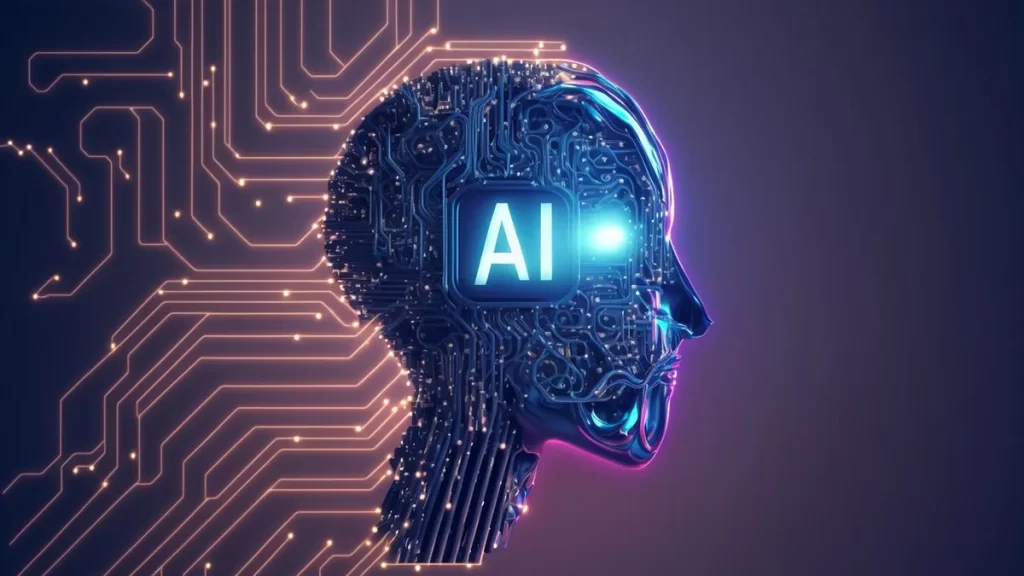-
By antonio-ingles
- In Uncategorized

Artificial Intelligence (AI) is no longer a futuristic promise—it’s a present reality that is redefining how companies operate, compete, and grow.
In the United Kingdom—one of Europe’s most advanced tech ecosystems—AI is revolutionizing key sectors like finance, retail, healthcare, logistics, and digital marketing.
From startups to large corporations, more and more British businesses are adopting AI-based solutions to automate processes, optimize decision-making, and offer better customer experiences.
Here’s how Artificial Inteligence is currently impacting business in the UK:
Business Process Automation
Intelligent automation is one of the most widespread uses of AI. Robotic Process Automation (RPA) tools combined with AI algorithms enable UK companies to automate repetitive tasks such as:
- Data entry and analysis
- Invoice processing
- Basic customer service
- Inventory management
Companies like UiPath, with a presence in London, are working with both SMEs and large enterprises to digitize workflows, reduce human error, and free up staff time for more strategic work.
Improved Customer Service with chatbots and virtual assistants thanks to AI
AI-powered virtual assistants and chatbots are transforming customer service in sectors like banking, retail, and telecommunications. These systems offer automated, personalized responses 24/7.
Examples in the UK include:
- Lloyds Bank and NatWest, which use conversational assistants to handle common financial queries.
- ASOS, the online fashion retailer, which uses AI to help users find products or resolve delivery issues.
Chatbots not only reduce wait times but also gather data on customer behavior, which helps businesses continuously improve their service.
AI in Data Analysis and Decision-Making
One of Artificial Inteligence’s greatest contributions is its ability to analyze large volumes of data (Big Data) in real time, extracting patterns, predictions, and actionable insights.
British startups like Signal AI and Quantexa offer data intelligence platforms that help businesses make faster, better-informed decisions. These tools are used to:
- Assess financial risks
- Forecast product demand
- Detect market opportunities
- Improve marketing campaigns
The ability to make data-driven decisions—rather than relying on intuition—is changing the mindset of business leaders.
Personalized Digital Marketing
Artificial Inteligence has taken digital marketing to the next level. With machine learning algorithms, companies can segment audiences, predict behavior, and personalize content in real time.
Common applications include:
- Product recommendations (e.g., Ocado, the British online supermarket)
- Automated emails with personalized content
- Predictive optimization of ad campaigns on Google and social media
The result: higher conversion rates, lower cost per acquisition, and a far more tailored user experience.
Smart Cybersecurity
Artificial Inteligence is also strengthening digital security. Systems that detect abnormal patterns can identify cyberattacks in real time and respond automatically.
UK-based company Darktrace, a global leader in AI-driven cybersecurity, provides solutions that learn a network’s “normal” behavior in order to identify threats before damage occurs.
This is especially relevant for SMEs that can’t afford a full cybersecurity team but still need to protect sensitive data.
Logistics and Supply Chain Optimization
In the logistics and manufacturing sectors, AI helps optimize delivery routes, forecast delays, manage inventory, and automate shipment tracking.
Example:
DPD UK, a delivery company, uses AI to predict shipping demand, allocate resources more efficiently, and improve delivery experience with real-time customer updates.
AI adoption by startups and SMEs
Thanks to the growing availability of APIs and low-code/no-code platforms, AI is no longer exclusive to large corporations. Startups and small businesses can integrate smart capabilities using tools like:
- ChatGPT and other natural language APIs for customer service or content generation
- Google Vertex AI, Microsoft Azure AI, or Amazon SageMaker to build custom models
- Zoho, HubSpot, or Salesforce AI for automated marketing and sales